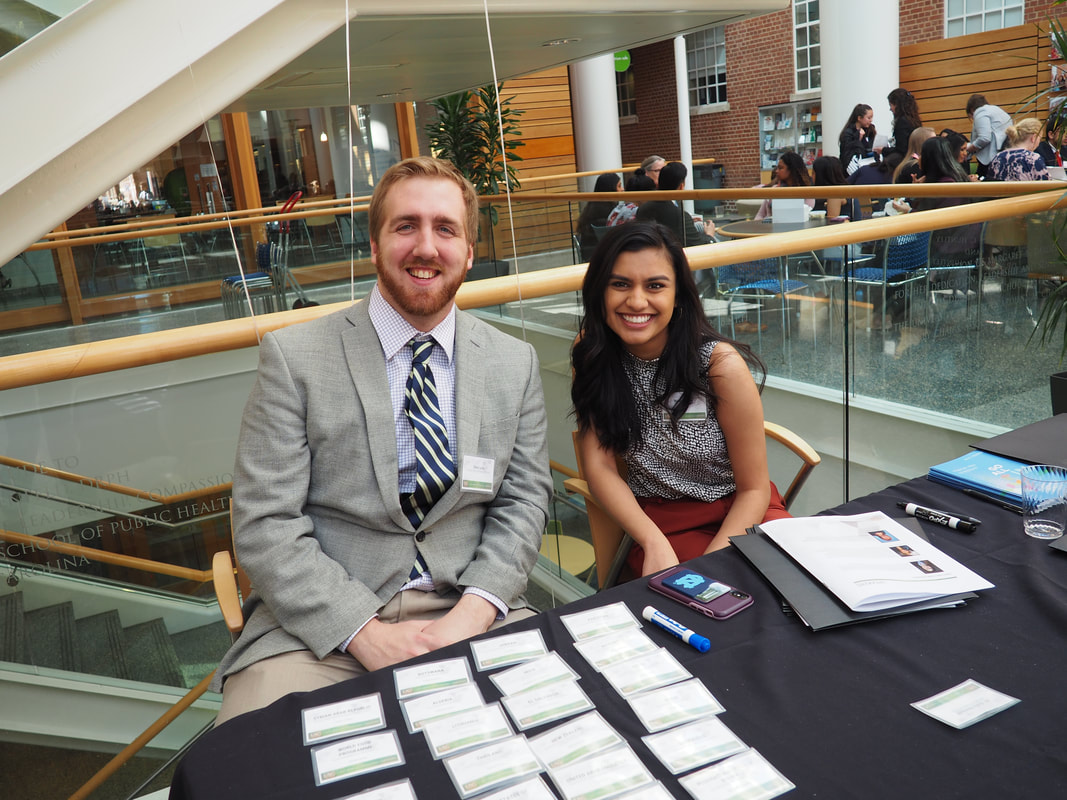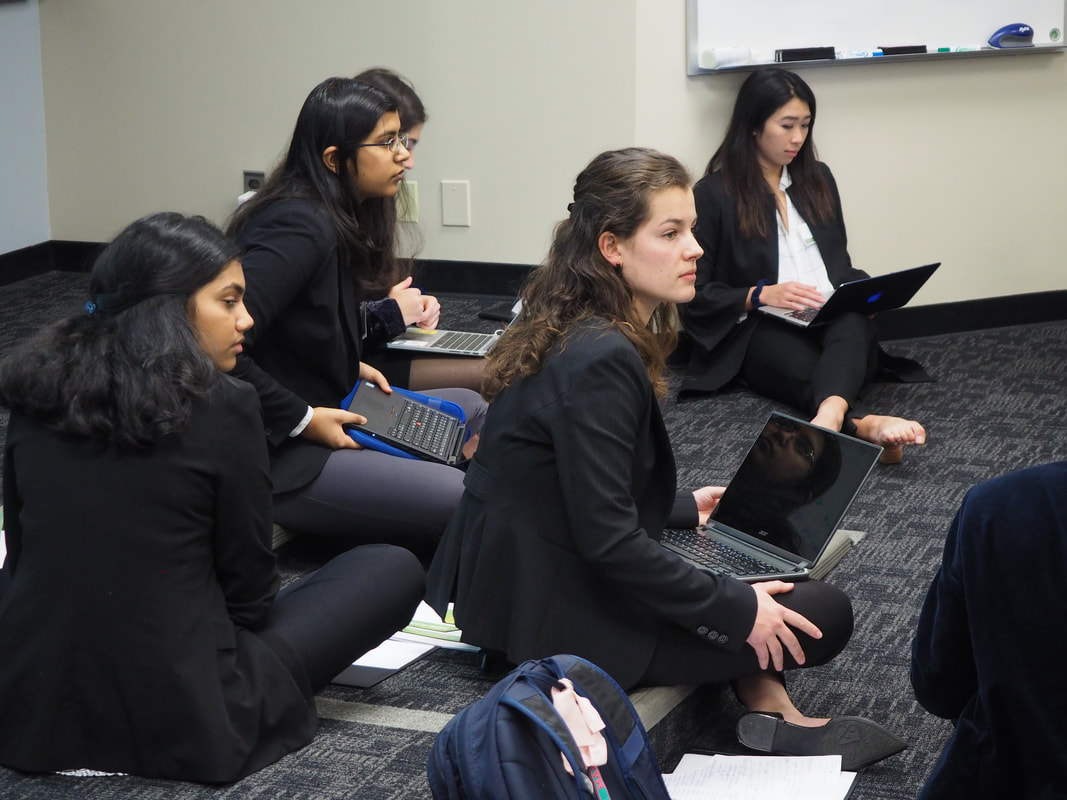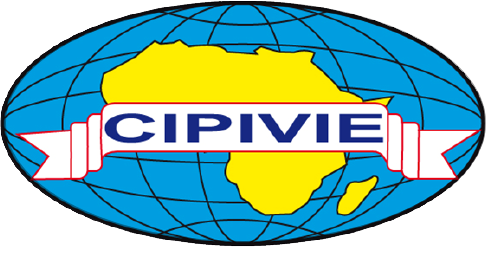WHAT IS AMWHO?

AMWHO is an authentic simulation of the World Health Assembly, the sole decision-making body of the World Health Organization (WHO). At the AMWHO International Conference, graduate and undergraduate participants will assume the roles of WHO ambassadors, non-governmental organization members, media correspondents, or industry representatives. Participants will engage in debates and discussion surrounding our theme for this year: Human Conflict & Global Health: Advocating for Emotional, Physical and Mental Health as a Human Right. Through collaboration, students will craft approaches to address our world’s pressing public health challenges and draft a final resolution to send to the World Health Organization in Geneva, Switzerland. Throughout the weekend, students will have access to renowned professors from the Gillings School of Global Public Health and public health professionals from the Triangle. Students will hear from and talk to these guest speakers at the opening ceremonies and the Lunch and Learn event. This conference will be held virtually.



THEME INTRODUCTION
The theme brief gives delegates an overview of the global health challenge that will be discussed and debated over the course of the conference. It includes sub-themes that break-down the intricacies of the problem and provides case studies that describe how countries in different regions of the world have been affected. Delegates may use the theme brief as a resource to write their position paper.

-
SUBTHEME 1: MENTAL HEALTH AND EMOTIONAL WELL-BEING
- Case Study: Violent and Mental Health in Cape Town, South Africa
-
SUBTHEME 2: PUBLIC HEALTH INSTITUTIONS AND INFRASTRUCTURE
- Case Study: Eritrean Independence and the Collapse of Public Health Infrastructure
-
SUBTHEME 3: NECESSITIES FOR LIFE: FOOD, WATER AND SHELTER
- Case Study: The India-Pakistan Conflict over the Indus Waters
-
SUBTHEME 4: BURDEN OF CONFLICT ON CHILDREN AND FAMILIES
- Case Study: Child Soldiers in Uganda
Conference Schedule
Saturday
|
Sunday
|
|
Jocelyn Getgen Kestenbaum
|
Jocelyn Getgen Kestenbaum is Associate Professor of Clinical Law at the Benjamin N. Cardozo School of Law where she directs the Benjamin B. Ferencz Human Rights and Atrocity Prevention Clinic and the Cardozo Law Institute in Holocaust and Human Rights (CLIHHR). Jocelyn’s scholarship focuses on human rights, public health, and atrocity prevention, especially related to preventing and responding to sexual and gender-based crimes, slavery and the slave trade, indigenous rights, and human rights violations against minority groups. She holds a JD from Cornell Law School and an MPH from the Johns Hopkins University Bloomberg School of Public Health.
|
LUNCH AND LEARN
|
Aaron Salzberg, PhD
|
Aaron Salzberg is the Director of the Water Institute at the University of North Carolina. The goal of the Water Institute is to contribute to a more water secure by advancing research, policy, and practice. From 2010 to 2017, Aaron served as the Special Coordinator for Water at the U.S. Department of State where he managed the development and implementation of U.S. foreign policy on drinking water and sanitation, water resources management, and transboundary water issues. He was the first person to hold this title. In this role, Aaron led the development of the first U.S. Global Water Strategy and was the lead representative or the lead water advisor for the United States at several major international events on water including the G8, the World Summit on Sustainable Development, the UN Commission on Sustainable Development, and the World Water Forums. He also led the Department of State’s engagement on transboundary water issues in many regions throughout the world where water is, or may become, a source of tension or conflict.
|
|
Kathryn Grimes, MPH
|
Kathryn Grimes is a research public health analyst in the Global Public Health Impact Center at RTI International. Ms. Grimes has over 10 years of experience in public health research and program implementation, supporting projects in sexual and reproductive health, violence prevention, and infectious disease detection, prevention, and response. Committed to strengthening local leadership capacity, Ms. Grimes is adept at facilitating communication and coordination between a diverse array of stakeholders, including Ministries of Health, US and foreign militaries, and other implementing partners to avoid duplication of efforts and identify sustainable solutions to complex problems. Ms. Grimes is a member of RTI’s Global Gender Center, a cross-institute center working to significantly influence research, practice, and policy to improve global gender equity. She is the leader and cofounder of the lesbian, gay, bisexual, and transgender (LGBT) working group: LGBT+ Rising, coordinating activities to identify and increase staff capacity and networking to support LGBT+ research and programming.
|
|
Limbangi Mabandi
|
Mr. Mabandi is an American citizen, originally from the Democratic Republic of Congo, capital city Kinshasa. He formed CIPIVIE In the United States on April 23, 2013. The idea came after a successful trip by Mr. Mabandi in the Republic of Congo, in 2009. During his stay in Brazzaville, the capital city of The Republic of Congo, Mr. Mabandi learned about CIPIVIE through a local Doctor, Dr. Nlandu Florry. Mr. Mabandi was touched by the level of extreme poverty and a lack of modern medical equipments. It was clear from his point of view for an urgent need to act. It is Mr. Mabandi's highest desire together with CIPIVIE, to help the people of both Congo's and that partnership also will help other African countries. In doing so, Mr. Mabandi's strategy is to ensure that vulnerable and marginalized populations have a reliable basic education, access to primary healthcare and humanitarian pharmacies. Furthermore, agro-pastoral projects in rural areas will improve the quality of life while creating jobs for the most deprived populations.
Mr. Mabandi focused his presentation on CIPIVIE and its various projects in the Republic of Congo-Brazzaville, in the Democratic Republic of Congo-Kinshasa, and various works here in the USA with the interns working for CIPIVIE in order to obtain grants, medicines and medical equipments for the two Congos. Emphasis was placed on three priority projects, namely:
|
|
Johanna Birckmayer,
PhD, MPH |
Jo’s work, both domestic and global, has focused on exploring and improving the connection between data and evidence and effective policy and program. She currently coordinates the tobacco economics projects supported by Bloomberg Philanthropies, overseeing efforts to assist low-and middle-income countries implement effective tobacco tax policies to reduce tobacco use. From 2008-15, she directed the international research department at the Campaign for Tobacco Free Kids supporting global efforts to advocate for effective tobacco policies using data and evidence. She has worked with U.S. States to use data to improve the effectiveness of state and local level alcohol, tobacco and illicit drug prevention. In West Africa, she implemented and evaluated child survival projects focused on vaccinations, malaria and diarrheal disease. She is an Adjunct Professor at the Gillings School of Global Public Health, University of North Carolina.
|
|
Aunchalee Palmquist,
PhD |
Dr. Aunchalee Palmquist is an Assistant Professor at the UNC-Chapel Hill, Department of Maternal and Child Health, and affiliate faculty of the Carolina Global Breastfeeding Institute (CGBI). She is a medical anthropologist and International Board Certified Lactation Consultant (IBCLC). Dr. Palmquist conducts community-based participatory, ethnographic, and mixed-methods research on perinatal health inequities, with an emphasis on breastfeeding. Her scholarship and advocacy are informed by human rights-based approaches and a reproductive justice lens. She founded the CGBI Lactation and Infant Feeding in Emergencies (L.I.F.E.) Initiative in 2017. She is a CGBI representative to the WHO/UNICEF Global Breastfeeding Collective and the ENN Infant Feeding in Emergencies Core Group. In 2020, Dr. Palmquist serves as a Co-Steward of the United States Breastfeeding Committee, COVID-19 Infant and Young Child Feeding Constellation. Dr. Palmquist has previously served as an International Lactation Consultants Association liaison to the United Nations.
|
|
Stefani Baca-Atlas,
MSW |
Stefani Baca-Atlas, MSW is a doctoral student at UNC Chapel Hill School of Social Work. Her research focuses on the contribution of structural racism to violence against female-identifying people and associated transgenerational health disparities. Baca-Atlas is also involved in research projects related to sexual assault and exploitation of marginalized populations, risk factors and access to treatment of HIV/AIDS in Zambia and substance use in the U.S., and mental health intervention research among refugee women in the Triangle. Baca-Atlas relies on her social work background in interpersonal violence, human trafficking, international child welfare, and human rights as wells as critical transdisciplinary theory to inform her research. Her dissertation chair is Dr. Trenette Clark Goings.
|








